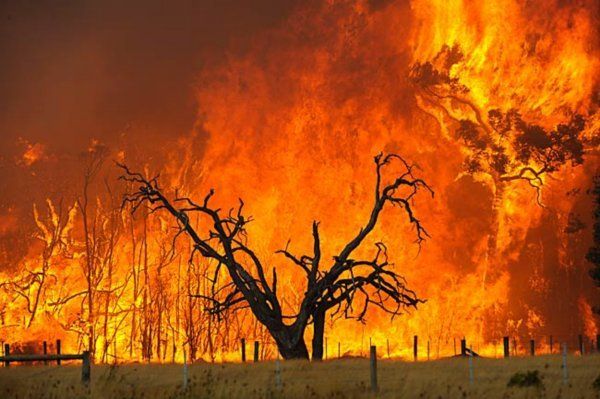On August 31, 1894 a firestorm swept across the woodlands of northeast Minnesota, swallowing the thriving town of Hinckley and several other smaller burgs as it cut a swath thirty miles wide as it plunged northeastward. As the inferno hit Hinckley temperatures soared to as high as 1,600 degrees Fahrenheit and the wall of flame soared up to one hundred fifty feet high. The heat vortex may have ascended as much as 30,000 feet into the sky. Under the intense heat steel wheels on train cars and the tracks upon which they once ran melted and ran into pools like water seeking its lowest level. Hundreds of lives were consumed by the flames as people frantically tried to outpace the driving firestorm.
Daniel James Brown in his account of the tragedy in Under a Flaming Sky recounts the story of one particularly fortunate group of the endangered from the tiny village of Partridge.
“A few of the villagers commandeered handcars and stated pumping their way up the tracks; others simply ran along the rails behind them. The largest group, though, remaining remarkably clearheaded, set out on a road toward a logging camp where a hundred acres had previously been burned over by another fire. It was three miles away—a long haul—and there was no chance to pause or rest, as a survivor later remembered: ‘All the time the fire was right behind us. The smoke had gathered again and thickened into a grayish-black mass which rolled forward at an incredible speed with a deafening roar, whining and rumbling. We had barely reached our place of refuge when the great wall of smoke behind us split, or rather was flung asunder, and a blood-red flame of fire shot out like a flash of lighting. In a moment, every particle of smoke had disappeared and in its place we saw a sea of fire as far as the eye could scan.’” (p.122)
Jesus echoed the prophets before Him in promising a judgment by fire. On the last day He separate the peoples and “will say to those on his left, ‘Depart from me, you cursed, into the eternal fire prepared for the devil and his angels’” (Matt. 25:41).
Indeed, the end of the Book tells us all, “if anyone’s name was not found written in the book of life, he was thrown into the lake of fire” (Rev. 20:15).
But there is hope, for Jesus bore the judgment of God against our sins in His own body on the cross. In those moments the fires of God’s holy wrath swept over Jesus who stood in our place, His death accounted as ours that we might be free.
This act in which Jesus satisfied the just wrath of God against us is called “propitiation.”
- “Therefore [Jesus] had to be made like his brothers in every respect, so that he might become a merciful and faithful high priest in the service of God, to make propitiation for the sins of the people” (Heb. 2:17).
- Jesus “is the propitiation for our sins, and not for ours only but also for the sins of the whole world” (1 John 2:2).
- “In this is love, not that we have loved God but that he loved us and sent his Son to be the propitiation for our sins” (1 John 4:10)
- “God put forward as a propitiation by his blood, to be received by faith” (Rom. 3:25a).
Jesus is the only safe ground from the coming wrath of God. When we flee in faith to Him we find ground where the fiery wrath of God has already burned over and where the fires of judgment will never again be visited. Flee to Jesus and be saved!


